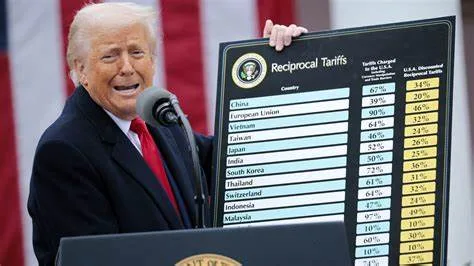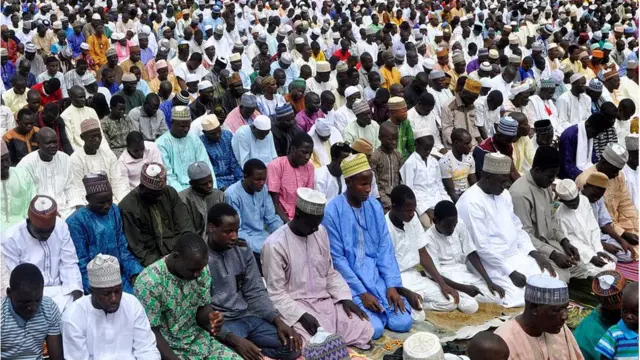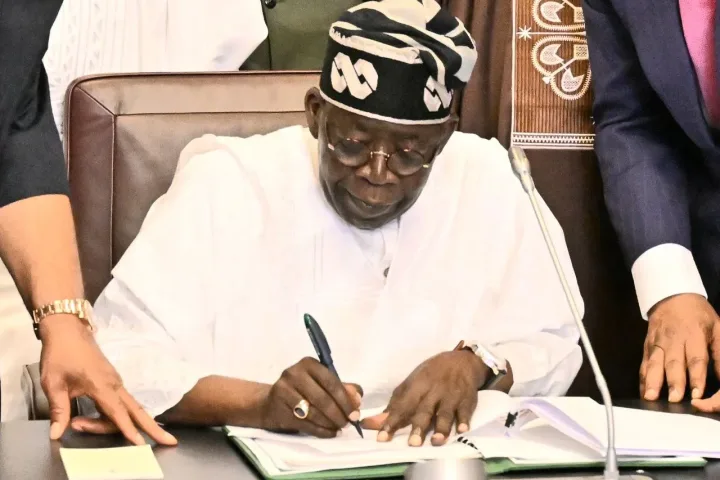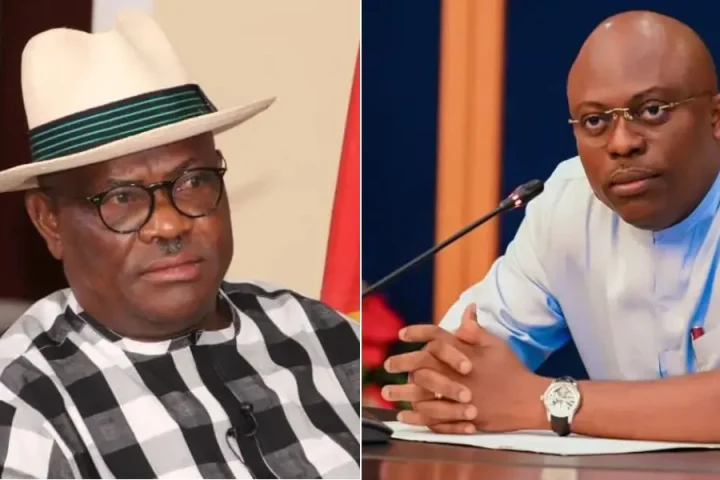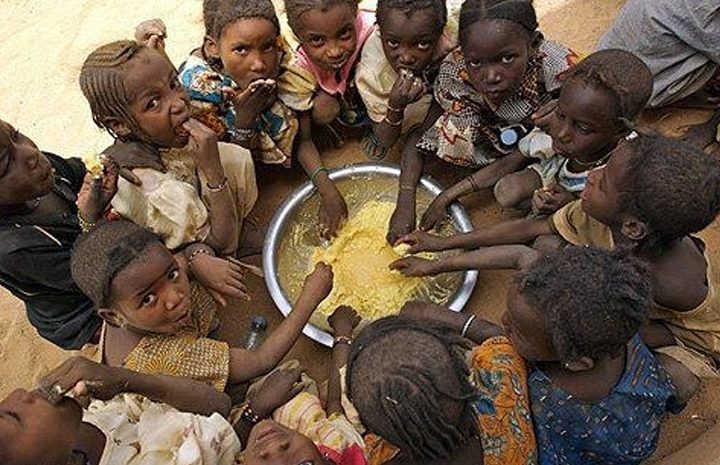There are indications that President Donald Trump’s recent imposition of sweeping trade tariffs on African countries strongly signals the impending end of the African Growth and Opportunity Act (AGOA), a landmark trade deal that has facilitated duty-free access to the United States market for eligible African countries since 2000.
Last week Wednesday, 2 April, Trump announced sweeping tariff, he called “reciprocal tariff, a weapon it is using in the ongoing trade war. The new tariffs include a baseline 10% duty on all imports, with higher “reciprocal tariffs” on specific countries. The White House said the tariffs are meant to address “trade imbalances.” The tariff will take effect on 9 April.
Join our WhatsApp ChannelMany African countries that are beneficiaries of the AGOA are said to be affected by the new trade policy of the United States.
Among the countries affected by the reciprocal tariff, five were the hardest hit in sub-Saharan Africa – Lesotho (50%), Madagascar (47%), Mauritius (40%), and Botswana (37%).
According to the list, others are: Angola (32%), Libya (31%), Algeria (30%) and South Africa (30%), São Tomé and Príncipe received (29%), Tunisia (28%), Côte d’Ivoire and Namibia (21%), Zimbabwe (18%), Zambia and Malawi (17%) and Mozambique (16%).
Other countries like Nigeria (14%), Equatorial Guinea, Chad (13%), DR Congo, Cameroon (11%) and Egypt (10%), among others, received lower tariffs.
Lesotho got the second-highest tariff rate of any country in the world after China, with 50% on all imports.
AGOA has enabled sub-Saharan African countries to enjoy tariff-free exports to the US market since 2000. It was initially set to last for 15 years but was extended on 29 June 2015 by a further 10 years, to 2025. While it was set to expire this September, a proposal had been made to US Congress to extend it till 2041. However, there are concerns on whether the US Congress would renew it.
Currently, 32 African countries are eligible for the AGOA scheme. Countries can be, and have been, taken off the list. Some of them include Niger and Gabon, which were removed from the list of beneficiaries after military coups.
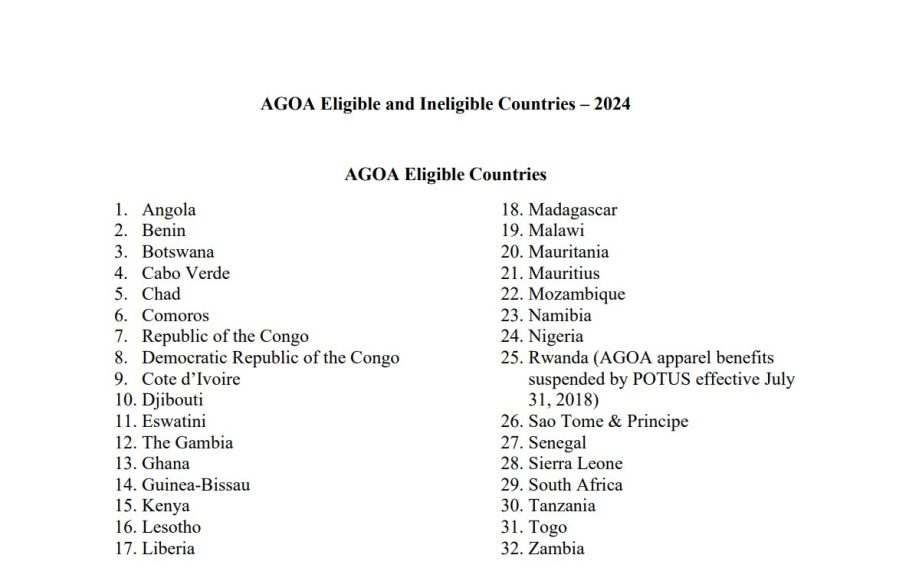
With the new trade tariff introduced by the Trump administration, analysts have expressed concerns that it could mean an end to the AGOA trade pact.
The Washington-based African Coalition for Trade said that with the new Tariff, it was unclear if the AGOA tariff exemptions on specific goods would remain in effect until September.
“There is no indication that imports under AGOA are exempt from the 10% tariffs, so it appears that, effective immediately, AGOA imports that previously were duty-free are now subject to a 10% duty.
“This is obviously not a positive sign for the outlook for renewal of AGOA,” the African Coalition for Trade stated.
However, Adrian Saville, a professor at South Africa’s Gordon Institute of Business Science, believes that with the new Tariff by Trump’s administration, the AGOA programme is gone even though it is yet to be officially terminated.
“The reciprocal trade announcement policy will pull the AGOA rug from under our feet. That will be gone. It will replace AGOA, you don’t have to wait for September. It’ll be gone before then,” said the economist.
READ ALSO: Trump Strikes With Tariffs, Nigeria Stands Down
Also, commenting on the impact of the tariffs on AGOA, an analyst and expert in international economic law, James Thuo Gathii, expressed doubt that Trump’s policies would favour renewing AGOA. “I don’t suppose that Trump’s policies would be to renew AGOA, which is preferential access to certain things,” Gathii stated in a media interview.
He further stated that doing so would be against Trump’s administration policy that prefers doing trade through tariffs.
He further observed that under the US system, the trade policy that was supposed to be designed by both Congress and the president is being done exclusively from the White House. This, he said, would affect the chances of AGOA being renewed since it originates from Congress.
Also, speaking on the impact of the tariff, Dr. Muda Yusuf, the chief executive officer of Centre for the Promotion of Private Enterprises (CPPE), agreed that Trump’s administration would close the African Growth and Opportunity Act (AGOA) scheme.
Devastating Economic Impact on African Nations
The South African government had responded last week, describing the new tariffs as “punitive”, adding that they “serve as a barrier to trade and shared prosperity.”
Similarly, a Bloomberg Africa economist Yvonne Mhango wrote: “African countries are being penalized for having trade surpluses, some of them achieved by pursuing export-driven development policies, as advised by the U.S.,” While reacting to one of Trump’s arguments that this protectionist policy would help bring back manufacturing jobs to America, Mhango stated: “Slapping high tariffs on Africa is not going to help this narrative.”
Lesotho, which relies on textile exports under AGOA, faces job losses and economic contraction. The World Bank estimated in 2018 that a 50% tariff could shrink GDP by 1% within two years.
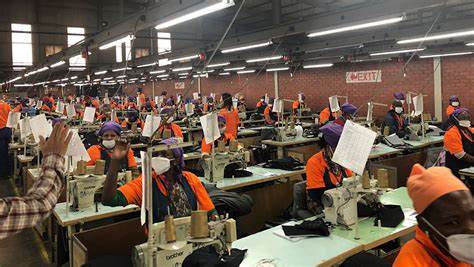
South Africa, the continent’s largest U.S. exporter, risks losing $2 billion in auto exports due to additional 25% tariffs on vehicles.
Analysts believe that Madagascar and Mauritius that are already grappling with poverty and climate crises, will see key industries (textiles, agriculture) crippled when the new tariff takes effect.
While some eligible African countries could not take advantage of the trade pact, others did. For instance, Kenya’s exports of textiles and apparel to the US under AGOA jumped from $55 million in 2001 to $603 million in 2022.
READ ALSO: AGOA: Nigerian Businesses Empowered On How To Benefit From U.S. Market Opportunities
Way Forward
For Dr. Carlos Lopes, an honorary Professor at Nelson Mandela School of Public Governance, Faculty of Commerce, University of Cape Town, it is time to put issues about AGOA behind and move on. Just like the foreign aid that was terminated through the disbandment of USAID recently, Lopes believes that AGOA was never meant to offer Africa any benefit on a sustainable basis.
“Goodbye #AGOA! It was never an agreement anyway. It was a unilateral concession that some, like me, indicated was not in Africa’s interest because investors prefer predictability rather than goodwill. The reality of this is now obvious. Let us move on,” Lopes wrote on his X handle.
Some political leaders and analysts have advised on the way forward to mitigate the impact.
Presidential candidate of the Labour Party in Nigeria’s 2023 election, Mr Peter Obi, charged African countries to rise up and take the right actions to adapt and profit from whatever trading system that will arise as a result of Trump’s economic policy.
Obi, who spoke on Tuesday in London at the Plenary of the Commonwealth Enterprise and Investment Council (CWEIC) Trade and Investment Summit of 2025, said Africa is blessed with abundant natural resources and a huge youth population which could be harnessed to achieve great positive impact, not just within the Commonwealth economy but globally.
He advised African leaders to invest in “its potential – the youthful human capital of over a billion workforce it has to create the needed skilled workforce and productivity both for Africa’s and global development.”
Obi emphasised the need for refocusing attention towards scaling up the productive base of African economies.
“We need to produce more goods and services that the world needs and be smart to leverage whatever global trade arrangement survives Mr Trump’s disruption,” Obi added.
How AfCFTA Implementation Can Cushion the Potential Effect of Trump’s New Tariffs
Chief Executive Officer of Ecobank Transnational Inc., Jeremy Awori, said African countries can mitigate the potential economic effect of Trump’s new tariffs by fast-tracking the implementation of the African Continental Free Trade Area (AfCFTA) to boost regional trade.
In an interview with Bloomberg TV, Awori, who admitted that Trump’s tariffs will replace the African Growth and Opportunity Act, stressed that the ensuing trade war, underscores the need for African countries to fast-track the implementation of the AfCFTA, which came into effect in October 2022.
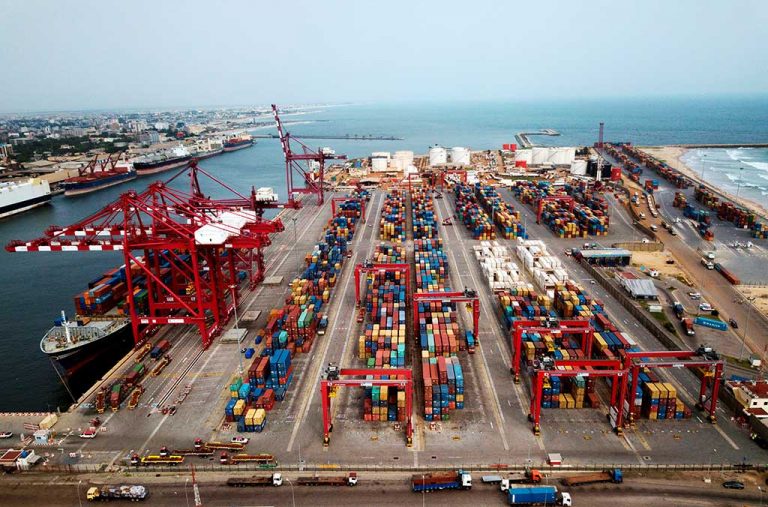
According to World Bank estimates, the implementation of AfCFTA could boost African exports by $560 billion. However, there has been slow progress in the implementation of the agreement.
Awori advised that beyond tariff reductions, Africa must address factors creating barriers such as restrictive visa policies and logistical challenges faced by landlocked countries.
Victor Ezeja is a passionate journalist with seven years of experience writing on economy, politics and energy. He holds a Master's degree in Mass Communication.

